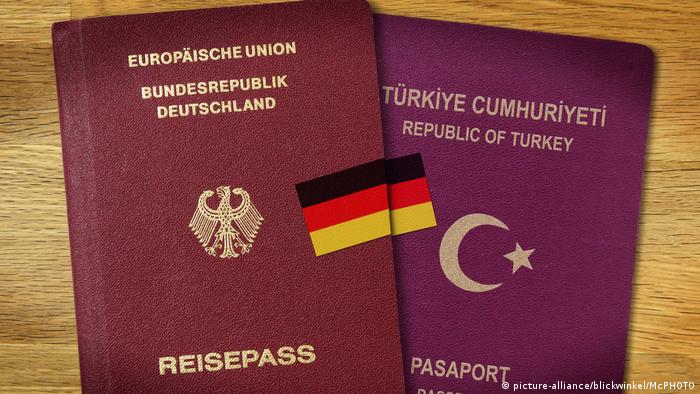Published on 2022-11-15 at 14:00 by Ameerah Arjanee*
The German government has decided to ease its naturalization laws. From December 2022, the number of years of residency needed to apply for citizenship will be reduced from 8 to 5 years. In addition, dual citizenship will be finally allowed for all expats, not just a select few. At a time when the country is suffering from labor shortages, these amendments will likely attract more expats who hope to become EU citizens.
Dual citizenship used to be limited to a few expats
Germany had been among the few countries in the European Union to restrict dual citizenship. Austria, the Netherlands, Slovakia, Lithuania and Latvia are other EU countries with similar restrictions.
Meanwhile, other economically powerful EU countries with many immigrants, like France, Spain and Italy, have accepted dual citizenship for a very long time. Immigration powerhouses beyond the EU, like the UK, the US, Canada and Australia, also recognize dual citizenship. Germany's restrictive policies on this issue made it lose a competitive edge to these other competitors in the global race for skilled immigrants.
It's not that dual citizenship was impossible to obtain in Germany; it was just restricted to a few, highly specific cases. It was allowed for expats from other EU countries or Switzerland. It was also allowed for expats whose home countries didn't allow the forfeiting of their nationality (Morocco, Argentina, Uruguay, Mexico).
Other exceptions were made for foreigners who were hoping to acquire citizenship by descent or ancestry. It was also exceptionally allowed for first-generation Germans with one foreign-born parent and one German parent. Alternatively, these first-generation Germans could also have two foreign-born parents, as long as one of these parents had been in Germany for at least 8 years when they were born.
A humanitarian exception could also be made for expats who could no longer renounce their previous citizenship because of old age, health problems, or financial constraints. Renouncing one's citizenship can be a costly procedure. It costs 2,350 US dollars to renounce one's American citizenship, for instance. Expats who wished to appeal to have dual citizenship had to apply for a retention permit (“Beibehaltungsgenehmigung”).
8 years of residency used to be required for naturalization
Before the latest reforms, Germany also required a longer period of residency before expats could apply for citizenship. Expats needed to have been in Germany for 8 continuous years before they were able to renounce their former citizenship and become German citizens.
In comparison, in France, the UK, the US and the Netherlands, expats need to have lived in the country for only 5 continuous years in order to apply for citizenship. In Australia, the requirement is even lower: 4 years. In Canada, expats need to have been in the country for 3 out of the past 5 years to start the naturalization process. While it's true that Spain and Italy have an even longer waiting time (10 years), Germany still didn't offer the most competitive conditions.
The previous German government, led by Angela Merkel from 2013 to 2021, was inflexible when it came to reforming citizenship rules. In September 2021, a new ruling tripartite coalition and a new chancellor, Olaf Sholz, were elected. This new government is more willing to amend citizenship laws, especially after the pandemic created a labor shortage in the country.
More lenient citizenship laws to boost immigration
As of December 2022, the German state will finally allow dual citizenship. The previous, hyper-specific eligibility requirements for dual citizenship will become defunct, as any expat is eligible from now on. The number of years of residency to apply for citizenship will also be reduced to 5 years, so it will finally be on par with other historical lands of immigration.
Why this relaxation of the laws now? This reform will work in favor of Germany's immigration goals. The country's current immigration target is an ambitious 400,000 new skilled workers (i.e., economic migrants) per year.
Germany faces tough competition from other (often larger) immigration powerhouses which have also increased their targets, notably Canada and Australia. The pandemic, border closures and Great Recession have created labor shortages in these countries, and they are now engaged in a race to attract global talent to fill their vacancies. Easing the path to and conditions for EU citizenship will attract many skilled expats from outside the union.
Germany is experiencing a shortage of skilled workers in various sectors: healthcare, elderly care, manufacturing, construction, information technology, the natural sciences, engineering, catering, hospitality, and skilled trades (e.g., plumbing, the maintenance of electric circuits). Earlier this year, Christian Duerr, a parliamentarian of the government coalition, stressed that “the shortage of skilled workers has become so serious by now that it is dramatically slowing down our economy.” Easing citizenship laws is one of many measures the government is taking to attract immigrants. In October, they also increased the minimum wage from €10.45 to €12 to be a more attractive country to work in.

